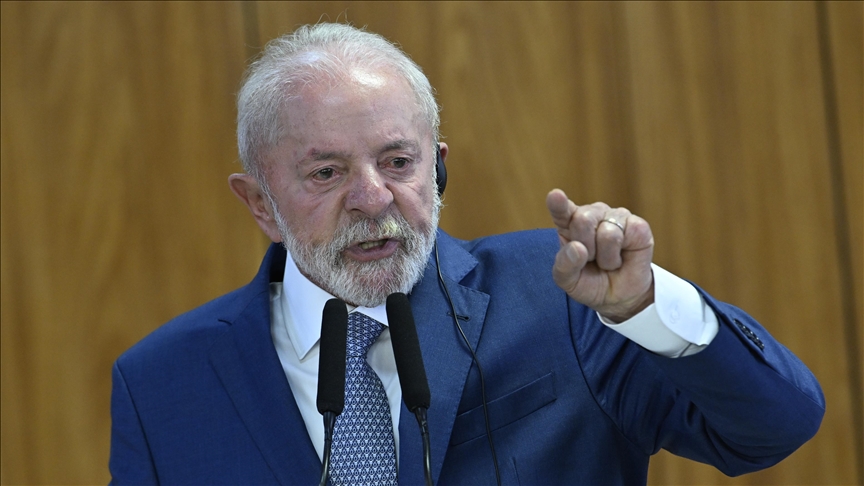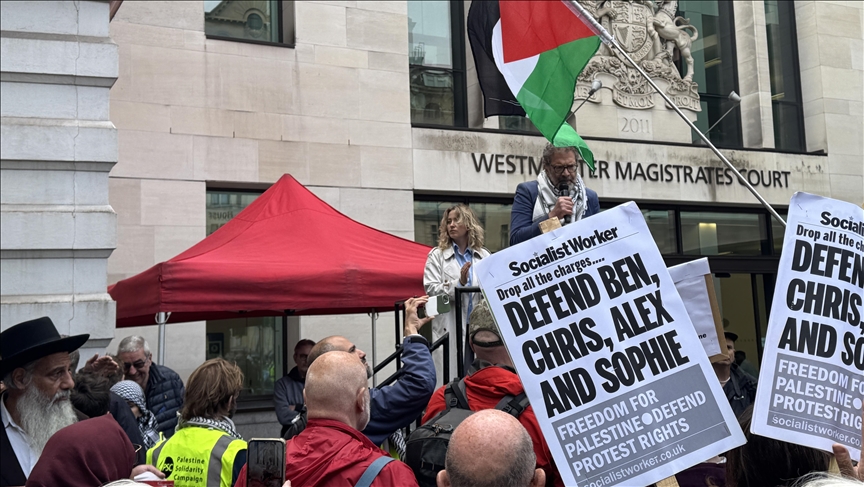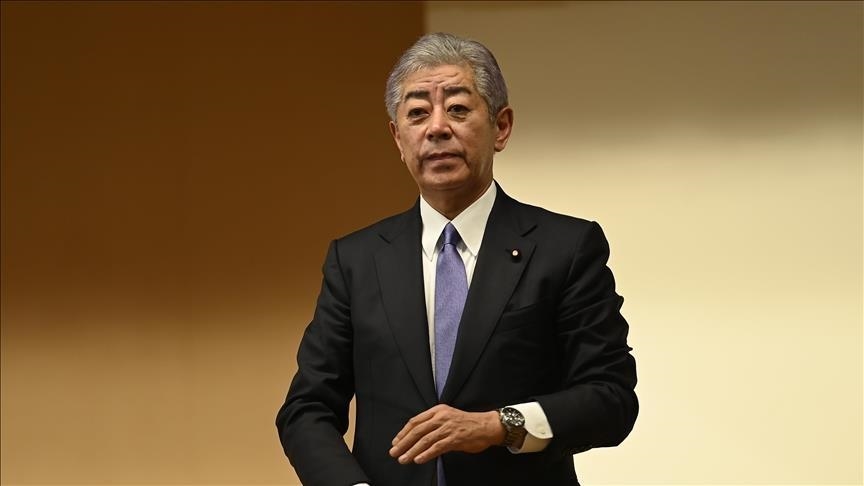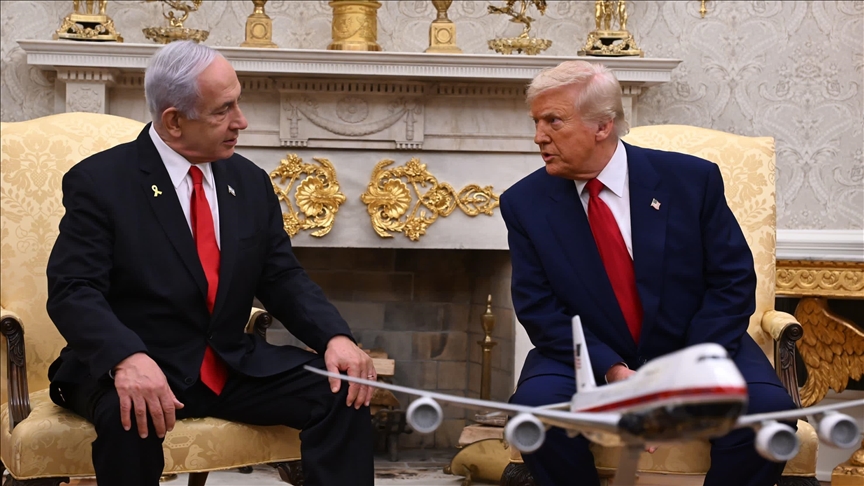In 2016, during his visit to Krakow, Poland's second-largest city after Warsaw, Hungarian Prime Minister Viktor Orban filled his speech with praise about the nature of Polish-Hungarian friendship. However, over the nearly eight years since, Orban’s views on this relationship have gradually changed. This shift became evident during his speech at the Tusványos summer camp in Romania’s Transylvania region:
"Poles pursue the most duplicitous and hypocritical policies in Europe. I have never seen such open hypocrisy in the last ten years.”
Warsaw's response was swift. Poland’s Deputy Foreign Minister Teofil Bartoszewski replied to Orban’s statement by saying:
“Why doesn't Orban ally himself with Putin and other authoritarian politicians like him? If you don't want to be part of a club, you can leave it.”
In his statement, Bartoszewski described Polish-Hungarian relations as a “serious intra-family dispute” and labeled Orban's words as “not only anti-European but also anti-Ukrainian and anti-Polish expressions.”
Despite the close friendship between Orban's Fidesz party and the late Polish President Kaczynski's Law and Justice (PiS) party, the war in Ukraine strained this relationship. When Donald Tusk's centrist coalition came to power in Poland, tensions escalated further.
Shifting Allegiances: From Tusk to Kaczynski
When Orban came to power in 2010, he was closer to Poland's then-Prime Minister Donald Tusk than to Kaczynski. Both were members of the conservative European People’s Party within the EU, both had anti-communist opposition backgrounds in the 1980s, and both saw parallel rises in their careers within their respective nations.
“There is talk that Orban and Tusk were on good terms because both were fans of football when they were in the same EU party,” says Dr. Edit Zgut-Przybylska, Associate Professor at the Polish Academy of Sciences Institute of Philosophy.
“This relationship had a lot to it. Orban’s political support played a significant role in Tusk’s election as President of the European Council. When relations soured around the mid-2010s, for some reason, Fidesz’s relations with both the European Union and Brussels also deteriorated,” Hungarian expert on Hungarian-Polish relations, Zsombor Zeöld, noted.
As Tusk drew closer to Brussels, Orban’s clashes with European institutions intensified. Around this time, Tusk’s Civic Platform party lost elections to Kaczynski’s PiS. Although PiS was a right-wing and reformist party, its political views were more aligned with Fidesz.
After assuming power, Kaczynski's relationship with Orban grew even closer. In one of his speeches, Kaczynski even expressed his desire to “turn Warsaw into Budapest.” Like Orban, Kaczynski sought to bring the media and judiciary under political control, though PiS’s opponents in Poland were stronger and more influential than the opposition in Hungary.
These developments troubled Europe, with Poland and Hungary’s drift from democracy exposing them to pressure from Brussels. This pressure further strengthened the alliance between the two forces.
“This closeness stemmed mainly from their rejection of migration and unwillingness to accept democracy and rule of law,” Zgut-Przybylska notes. “Neither recognized the legitimacy of EU institutions or European legislation. Authoritarian-minded leaders tend to emulate each other, which led to similar intense internal debates in both countries over issues like culture wars, judicial reform, and media takeovers.”
Of course, there were differences between Kaczynski and Orban. Kaczynski acted as an ideologue and took a particularly rigid stance with Europe, complicating his relationship with Brussels. Orban, on the other hand, was flexible, knowing when to advance and when to retreat, allowing him to keep control in Hungary.
Orban’s pragmatism was evident in the 2017 European Union presidential elections. Despite PiS issuing anti-Orban statements in Warsaw, Orban supported Tusk in these elections.
Although Polish-Hungarian relations still carry a nostalgic aura of “Polish-Hungarian brotherhood,” both countries understand that this “brotherhood” has lost its relevance.
“Over time, the political dynamics in Polish-Hungarian relations have intensified. Both Polish and Hungarian societies now hold the belief that if you are Polish and support Hungary, you back PiS, and if you’re Hungarian and support Poland, you are a Fidesz supporter,” says Zeöld.
In 2019, the political situation became so tense that Orban invited his Polish colleague Mateusz Morawiecki to deliver a speech on Hungary’s national day. That same year, Tusk was elected President of the European People's Party, which led to Fidesz’s membership being suspended. Tusk commented on Fidesz's departure by saying, "Fidesz abandoned Christian Democracy years ago."
Ukraine Divides the “Brothers”
The complete breakdown of relations between Budapest and Warsaw came after the Russian military intervention in Ukraine in February 2022. While the Polish public (including both PiS and Civic Platform) supported Ukraine, Fidesz chose a different path.
Orban abandoned his previous anti-Russian stance and became Russia’s closest ally in the EU. Poland, on the other hand, not only politically supported Ukraine but also provided military assistance and welcomed millions of Ukrainian refugees.
These differences quickly spilled over into politics. During the 2022 parliamentary elections in Hungary, Tusk campaigned for the united opposition coalition. In his address to the Hungarian public, he urged them to “vote against Europe’s most pro-Putin government.” Despite Tusk’s efforts, Orban emerged victorious in this election.
At his first press conference after the election, Orban responded to a question about Russia's actions in Bucha, near Kyiv, by suggesting an investigation rather than condemning Russia. The Hungarian Prime Minister attributed this stance to “living in an era of mass manipulation.”
This prompted Kaczynski to respond forcefully, saying, “If Orban cannot see what happened in Bucha, I advise him to visit an optometrist.”
Now, the Poles and Hungarians, once united in their historical fight against Russia, find themselves on opposing fronts regarding the war in Ukraine.
“I wouldn’t want to be a Hungarian in Warsaw because the Poles are angry with Orban’s policies,” Zgut-Przybylska says.
“My Polish friends, acquaintances, and colleagues tell me, ‘We didn’t know Hungary’s stance on Russia until 2022,’” adds Zeöld, referring to the economic ties between Hungary and Russia and the close relationship between Putin and Orban. “They realized it in 2022, but they were firmly against it.”
Tusk Returns as Orban’s Longtime Foe
Despite official distancing between Warsaw and Budapest, there are still some ties between Fidesz and PiS. Last year, PiS turned to advisers close to Orban to organize its campaign.
“PiS genuinely believed that the populist messages underlying Fidesz's victory strategy would help them too. That’s why they eagerly adopted the message ‘Tusk is the greatest threat to Poland alongside Middle Eastern migrants,’” said one observer.
But this assistance was not enough to change the situation. Fidesz still faces pressure from Brussels, and PiS cannot help it.
Tusk’s victory has further strained relations between the two sides. Tusk, who has been actively cultivating an anti-Orban image internationally, is also working internally to return the country to Europe’s orbit by reversing PiS’s changes in the media and judicial systems.
“Tusk presents himself as Orban’s antagonist: unlike Eurosceptic populists, he aims to restore democracy and regain EU financial support,” Zgut-Przybylska explains.
Zgut-Przybylska adds, “Relations between the two sides are at a historic low. This is evident in diplomatic appointments as well, such as Hungary's new pro-Kremlin ambassador to Poland. Orban’s government is committed to ending Polish-Hungarian friendship,” Zgut-Przybylska concludes.










